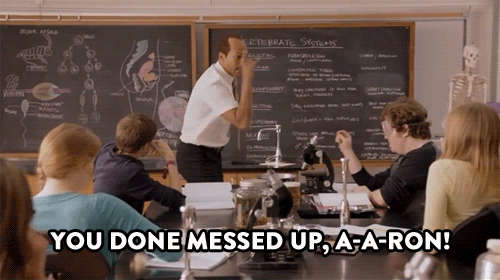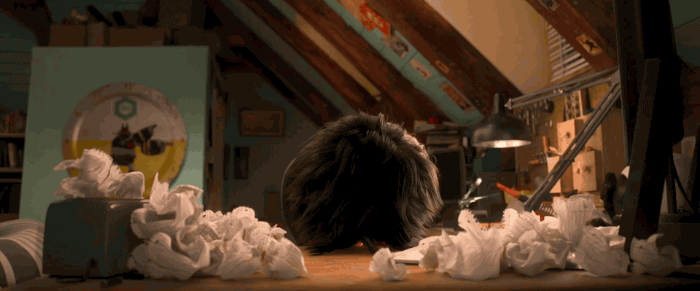You walk into the classroom slowly, deliberately taking it all in. Laptop out, Microsoft Word opened up (or Scrivener if you’re pretentious like that, which of course you are). The professor strides in, adorned with a briefcase and pristine tweed jacket. Your peers surround you, equal parts tortured genius, equal parts rugged cynicism. A kid nearby dons a T-shirt reading “Suck My Dick” in eloquent script beneath a print of a whale. Your professor pulls up his minimalist PowerPoint, and you finally begin your epic journey of body, mind and soul. Words are your drug and you’ve just taken your first hit of the semester. Let the high begin…
Now let’s get real. None of that will actually happen, except maybe the kid with the “Suck My Dick” shirt, but don’t talk to him. He’s the one critiquing your paper with comments like, “I just can’t connect with the protagonist. Have you considered writing her as male instead?” Remember, foraying into fiction isn’t for the faint-hearted. Ye’ve been warned, but check out these tips to get through the semester.
Reading

You’ve obviously chosen to take this course because you love writing, which means you also love reading. Famed author Stephen King once said, “If you want to be a writer, you must do two things above all others: read a lot and write a lot.”
Over the course of the semester your instructor (who will likely be a grad student, and therefore likely not wearing tweed) will assign several short stories to read. Because this is only an introductory course, don’t expect anything crazy. The readings probably depend on the personal tastes of your instructor. You’ll also discuss the material in class, so be prepared with comments pertaining to the lessons. You don’t have to insanely annotate your copy, just make sure you have something of substance to say–no, “Yeah, uh, it was like…good,” doesn’t count.
Lessons

As far as lessons go, you’ll likely cover the basics of storytelling: plot, character development, narrative structure, point of view, voice and dialogue, among others. Take avid notes, but don’t get caught up on details. Remember that writing is subjective, and thus will be graded so. If it helps, keep a list of examples with every topic. The lessons are more easily understood when paired with good writing. This is especially helpful for concepts like point of view and dialogue, where concrete examples will often make more sense than the notes themselves.
Workshop

The workshop portion of the class is the climax of your weeks of hard work, the culmination of your creative studies, your final capstone commodity and other C-words. It’s time to workshop, and no, you’re not ready. Not at all.
Let’s address the essential Do’s and Don’ts of workshopping:
- DON’T forget to print plenty of copies of your story, plus a few extra, to distribute to your classmates and instructor. You don’t want to make your professor email your story to the class, forcing your peers to print it on their own. They’ll take out their frustration in the margins.
- DO give insightful comments. Remember: They’re looking for feedback about the story. Tell them about a plot point you felt was executed well or a character you thought needed tweaking.
- DON’T go into grammar-fixing-mode. That is why editors exist. And unless you have exceptional, certifiable experience in this area, you risk making a fool of yourself.
- DO be kind. This is a beginner course. Everyone is learning.
- DON’T be “Suck My Dick” guy.
There’s a decent chance many of your peers are only taking this course to fulfill a gen ed writing requirement and might not be as invested as you. When it comes time to have your own work critiqued, keep that in mind and don’t let careless comments bother you. The truth is that putting yourself out there is hard, especially if you write from the heart. At times, handing out a story for workshop might feel like ripping out a piece of yourself and throwing it to the wolves. But despite the difficulty, you’ll be a better writer having gone through it. King also said, “[K]ill your darlings, kill your darlings, even when it breaks your egocentric little scribbler’s heart, kill your darlings.”
Ultimately, don’t be discouraged. You’re better off than you think you are, as writers tend to suffer from disconsolate periods of crippling self-doubt. Having peers review your work is extremely helpful in getting rid of that self-doubt. Besides, this is only a beginner’s course; intermediate coursework brings a host of other challenges. Remember “Suck My Dick” guy? Well, get ready for “Nauseatingly Unoriginal Hipster” girl. Quick, look away before she asks you to check out her soft grunge blog.



















